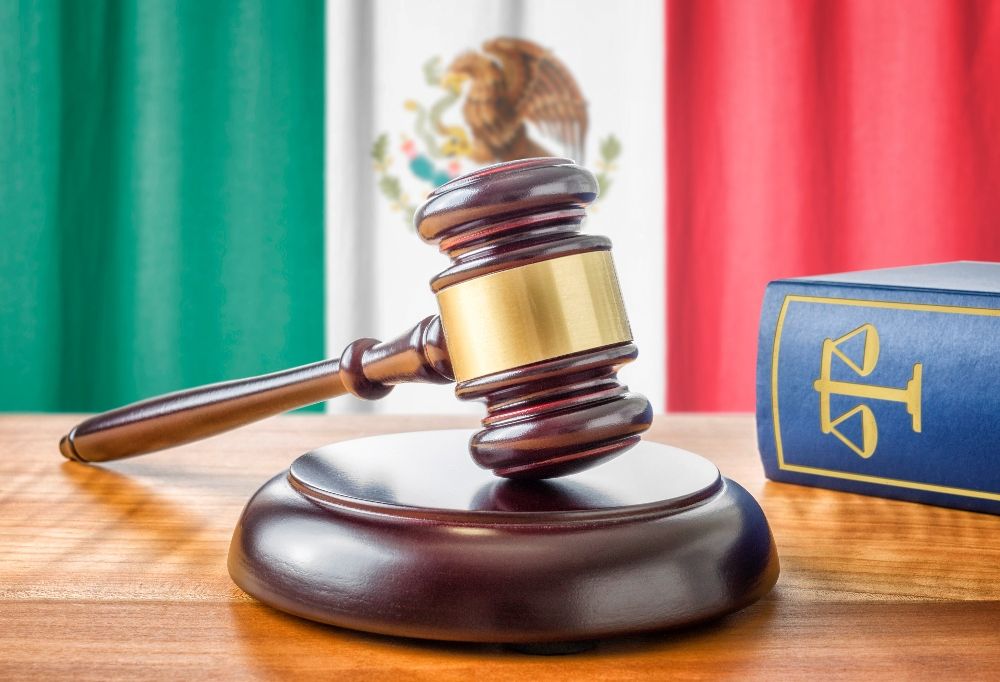Mexico’s recent Senate approval of a far-reaching judicial reform has ignited a heated debate among legal experts, judges, and international observers.
This reform, backed by the ruling party Movimiento Regeneración Nacional (Morena), is designed to overhaul Mexico’s judicial system by enabling the popular election of over 6,500 judges and magistrates starting in June 2025.
The proposed changes aim to enhance public accountability within the legal system but have been met with significant opposition and concern from various stakeholders.
Senate approval and legislative process
The reform was passed in the Senate with a vote of 86 in favor and 41 against, despite strong resistance from opposition parties such as Acción Nacional (PAN), Revolucionario Institucional (PRI), and Movimiento Ciudadano (MC).
This approval represents a significant legislative victory for Morena, which has a two-thirds supermajority in Congress.
The next phase involves the reform being reviewed by state legislatures, where Morena’s support base is expected to facilitate its passage.
Following successful passage, the reform will be officially published in Mexico’s government gazette, marking a critical step in its implementation.
Mexico judicial reform: opinions and concerns
Moisés Montiel, a prominent lawyer and professor at Mexico’s Center for Economic Research and Teaching, has raised substantial concerns about the implications of the proposed reform.
Montiel argues that electing judges through popular vote could undermine the independence of the judiciary and expose it to political pressures and external influences.
According to him, this change could lead to an erosion of judicial impartiality and increased susceptibility to manipulation.
Montiel acknowledges that the reform seeks to address some genuine issues within the Mexican judicial system, such as corruption, delays in legal proceedings, and restricted access to justice.
However, he criticizes the reform’s approach, which he believes may exacerbate existing problems rather than solve them.
He contends that the mass dismissal of district judges, circuit magistrates, and Supreme Court ministers, as outlined in the reform, could destabilize the judiciary and impact its effectiveness.
The reform initially proposed a comprehensive overhaul of the judiciary but has since evolved into a staggered replacement plan.
The first round of elections is set for 2025, with subsequent elections planned for 2027.
This gradual implementation is intended to ease the transition but also raises questions about the coherence and long-term impact of the reform.
The nomination process for new judges remains complex, with candidates to be selected from the executive, legislative, and judicial branches.
Montiel points out that the lack of clarity regarding nomination criteria and the absence of a transparent process could undermine the meritocratic nature of the new judicial appointments.
Judicial Discipline Tribunal
A particularly contentious aspect of the reform is the establishment of the Judicial Discipline Tribunal.
Montiel has expressed significant reservations about this tribunal, describing it as potentially becoming an “Inquisition of the Judicial Power.”
He argues that the tribunal’s broad grounds for dismissing judges, coupled with a voting mechanism that could be biased, poses a risk to judicial independence.
Montiel is concerned that judges could be removed without substantial justification, leading to a lack of recourse for those facing dismissal.
Montiel also highlights the potential negative impact of the reform on judicial efficiency.
He argues that without additional financial or material resources, the reform may fail to improve the handling of cases and could even slow down judicial processes.
The new judges, who may lack the experience necessary for effective court management, could further contribute to delays rather than enhancing efficiency.
Despite the accelerated timelines mandated by the reform, which require judges to justify delays in cases that have been pending for over two years, Montiel believes that the lack of resources will ultimately hinder progress.
Judicial quality and public perception
Another significant concern is the reform’s impact on the quality of the judiciary.
The reform stipulates that candidates for judicial positions must have achieved a minimum academic score and be licensed lawyers.
However, the specific requirements for postgraduate experience remain unclear.
Montiel criticizes this lack of clarity, suggesting that it could compromise the quality of the judicial personnel and raise serious concerns about the protection of citizens’ rights under the new regulations.
The reform has elicited strong reactions from various sectors, including academics and members of Mexican society.
Critics argue that the establishment of the Judicial Discipline Tribunal, combined with the insufficient resources allocated for judicial functions, could lead to unfair dismissals of judges and undermine the overall effectiveness of the judicial system.
These concerns underscore the complexity of the reform and the need for careful consideration of its potential implications.
Mexico’s judicial reform represents a bold attempt to address longstanding issues within the country’s legal system.
However, the controversy surrounding the reform highlights significant concerns about judicial independence, efficiency, and quality.
As Mexico moves forward with these changes, it is crucial to address the ambiguities and potential pitfalls of the reform to ensure that it achieves its intended goals without compromising the integrity of the judiciary.
The ongoing debate reflects broader questions about the balance between accountability and independence in judicial reforms, underscoring the need for a nuanced approach to strengthening Mexico’s legal system.
The post Why Mexico’s judicial reform is sparking controversy appeared first on Invezz

